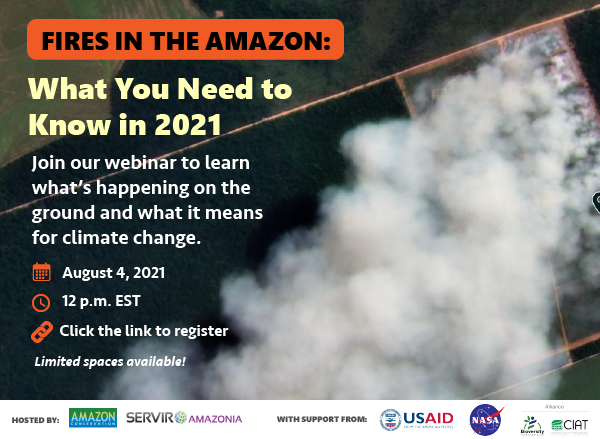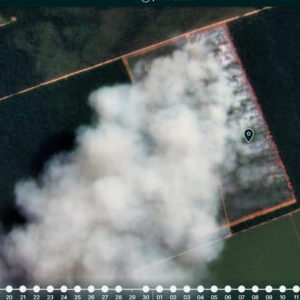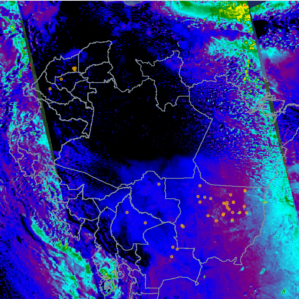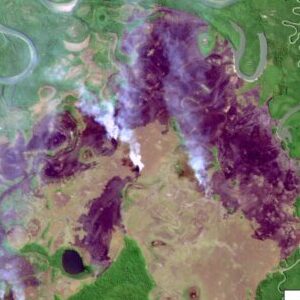-

John Beavers
Executive Director at Amazon Conservation
-
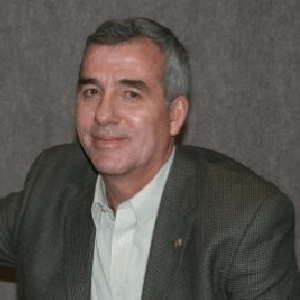
Carlos Gasco
SERVIR-Amazonia Program Director, affiliated with the Alliance of Bioversity International and the International Center for Tropical Agriculture (CIAT)
-
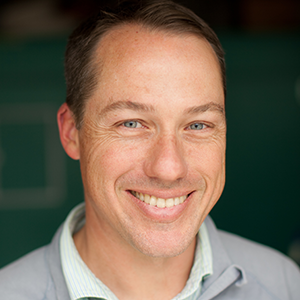
Miles Silman
Sabin Professor of Conservation Biology and Director of the Wake Forest University Center for Energy, Environment and Sustainability
-
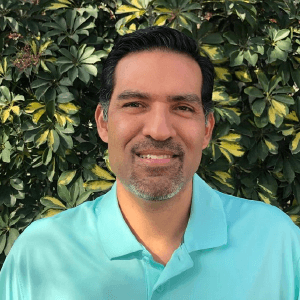
Brian Zutta
Science and Data Lead for SERVIR-Amazonía, working for the Spatial Informatics Group and is stationed in Lima, Peru
-
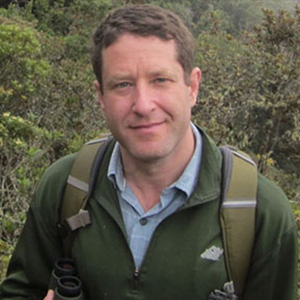
Matt Finer
Senior Research Specialist and Director of the Monitoring of the Andean Amazon Project (MAAP) at Amazon Conservation
-
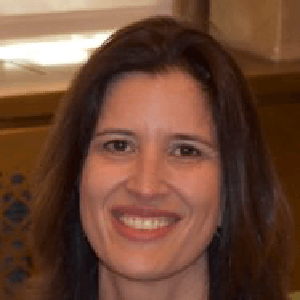
Kátia Fernandes
Assistant Professor of Geoscience at the University of Arkansas and Drought and Fires Theme Lead of the USAID-NASA SERVIR-Amazonia Project
-

Lucio Villa
GIS and Remote Sensing Specialist for Conservación Amazónica - ACCA in Peru
-
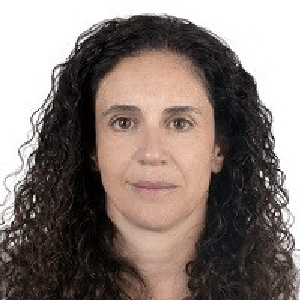
Dolors Armenteras
Professor of Landscape Ecology at the Universidad Nacional de Colombia
-
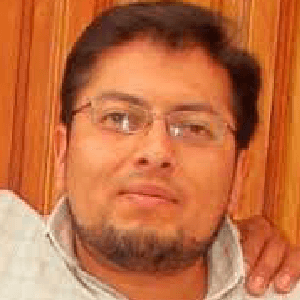
Marcos Terán
Executive Director at Conservacion Amazonica - ACEAA in Bolivia
-
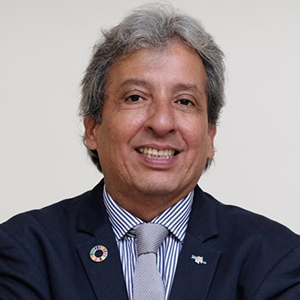
Manuel Pulgar Vidal
Leader of the Climate & Energy Global Practice, World Wildlife Fund
John Beavers
John Beavers is the Executive Director of Amazon Conservation Association. John has spent his career focused on conservation in Latin America ranging from on-the-ground conservation in the Maya Forest of Guatemala, Belize and Mexico to strengthening conservation organizations across Latin America. Prior to starting with Amazon Conservation in 2019, he spent seven years leading Audubon's international conservation efforts to protect key bird habitats and biodiversity in Latin America and the Caribbean.
Carlos Gasco
Carlos is the Project Director of SERVIR-Amazonia. He is an experienced international development professional who has worked on major international programs, primarily funded by USAID, providing overall program management, financial and administrative supervisory services, actively involving project stakeholders, and assuring general compliance of technical, financial and administrative client requirements.
Miles Silman
Miles Silman is the Sabin Professor of Conservation Biology and director of the Wake Forest University Center for Energy, Environment and Sustainability, has performed research in the western Amazon and the Andes for over 30 years. His research is focused on biodiversity and the responses of ecosystems to climate change, particularly the effects of climate on setting species ranges, as well as fundamental ecosystem processes such as carbon storage and nutrient cycling. Dr. Silman’s current projects include the Andes Biodiversity and Ecosystem Research Group, a consortium studying the effects of climate change on biodiversity and ecosystem function in the Peruvian Andes. Previous work includes the study of the role of life history and plant-animal interactions in the structure and diversity of tropical tree communities in Manu National Park, Peru, and a paleoecological investigation into the composition and stability of tropical tree communities over time. Many of his research studies have been conducted at Amazon Conservation's own Conservation Hubs in Peru. Dr. Silman received a PhD in zoology from Duke University and graduated with a BA in biology from the University of Missouri.
Brian Zutta
Brian Zutta is the Science and Data Lead for SERVIR-Amazonia, working for the Spatial Informatics Group and is stationed in Lima, Peru. He received his Ph.D. from UCLA and completed his postdoc at NASA-JPL. His most recent work focuses on deforestation monitoring and modeling, and bridging the gap between science and policy in Latin America. In addition, he is an external reviewer for the UNFCCC (United Nations Framework Convention on Climate Change) to evaluate National Forest Reference Levels, Biennial Update Reports, and REDD+ results.
Matt Finer
Matt Finer is a Senior Researcher at Amazon Conservation and the Director of its Monitoring of the Andean Amazon Project and continues to manage the program - a program he established in 2015 which now monitors 83% of the Amazon Rainforest in real-time using satellites. Prior to joining Amazon Conservation, he was a Project Scientist for the Center for International Environmental Law (CIEL) Sustainable Loreto project and Staff Ecologist at Save America’s Forests.
Kátia Fernandes
Kátia Fernandes is an Assistant Professor of Geoscience at the University of Arkansas, where she conducts research on how climate variability and change impacts tropical systems, including the effects of droughts, at various timescales, on fire activity in the Amazon and Indonesia forest biomes. She developed the first statistical seasonal fire forecast model for western Amazon based on remote sea surface temperature conditions in the Atlantic basin. Dr. Fernandes is the Drought and Fires Theme Lead of the USAID-NASA SERVIR-Amazonia Project.
Lucio Villa
Lucio is a specialist in GIS and remote sensing applied to earth sciences and the environment, with more than 10 years of experience in land-cover monitoring and land-use change analysis. With expertise in the field of environmental and georisk engineering, he has developed studies focused on monitoring anthropogenic impacts as well as those caused by natural phenomena on the Peruvian coastal and Amazon regions. He currently serves as GIS and Remote Sensing Specialist for the MAAP (ACCA) Initiative and as a Remote Sensing Professor at the Department of Environmental Engineering (UNALM).
Dolors Armenteras
Dr. Dolors Armenteras is a biologist from the Universitat de Barcelona, with a Master’s in forest management and conservation from the University of Wales and a Ph.D. in Geography from King’s College London. Currently, she is a tenured professor in Landscape Ecology at the Universidad Nacional de Colombia. Previously, she worked in the environmental sector where she developed the first integrated system for spatial geographic information to monitor ecosystems and biodiversity in the early 2000s and to coordinate the first evaluation of ecosystem services completed in Colombia in 2005. She is recognized as one of the 50 most influential women scientists in Fire Ecology.
Marcos Terán
Trained as a biologist with a Master’s in Tropical Biodiversity Management and Conservation and an MBA specializing in project management. Marcos has a range of experience in research topics relating to biodiversity, ecology, natural resource management, and managing conservation spaces, as well as writing, monitoring, project evaluation and management, interdisciplinary group management, and strategic planning. He has been a part of and led multi-disciplinary working groups that have participated in planning programs and projects, biodiversity research, and natural resource management, the product of this collaborative work resulting in the publication of various scientific articles in national and international magazines. Marcos is also a member of several research networks as well as national and international forest management networks. Much of his professional experience comes from work related to indigenous territories and protected areas in the Bolivian Amazon, where he has coordinated and led various programs and projects that generated information and tools to strengthen the management of these territories. Currently, Marcos is the Executive Director of ACEAA and, along with a solid multidisciplinary team, moves forward actions and strategies that promote the conservation of one of the most important macroregions in Bolivia: the Amazon.
Manuel Pulgar Vidal
Manuel Pulgar-Vidal is the Leader of the Climate & Energy Global Practice of World Wild Fund for Nature International. As the former Minister of Environment of Peru, he has a long history of supporting conservation in the Amazon, including as President of the UN Climate Convention’s Twentieth Conference of the Parties (COP 20).
